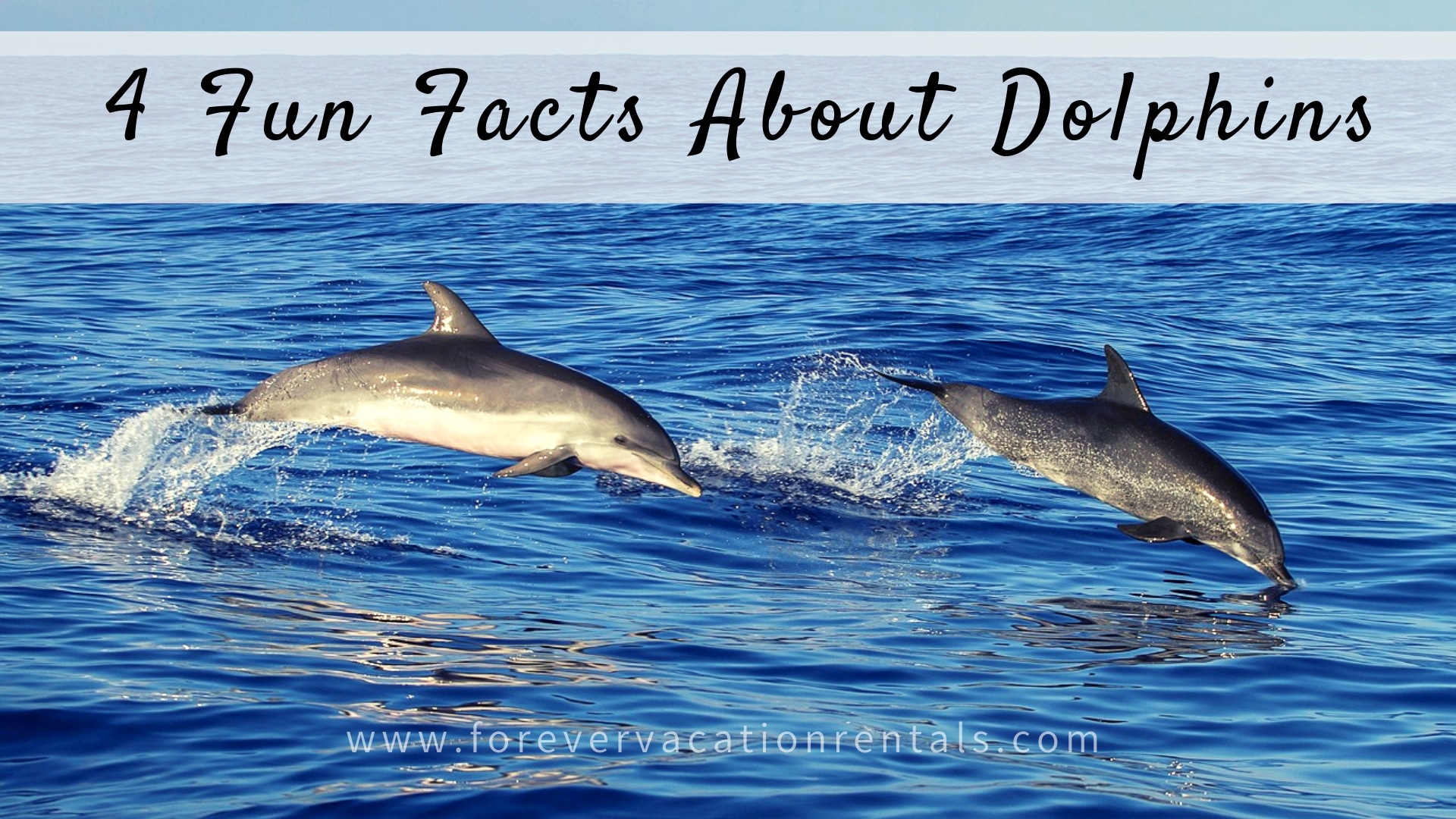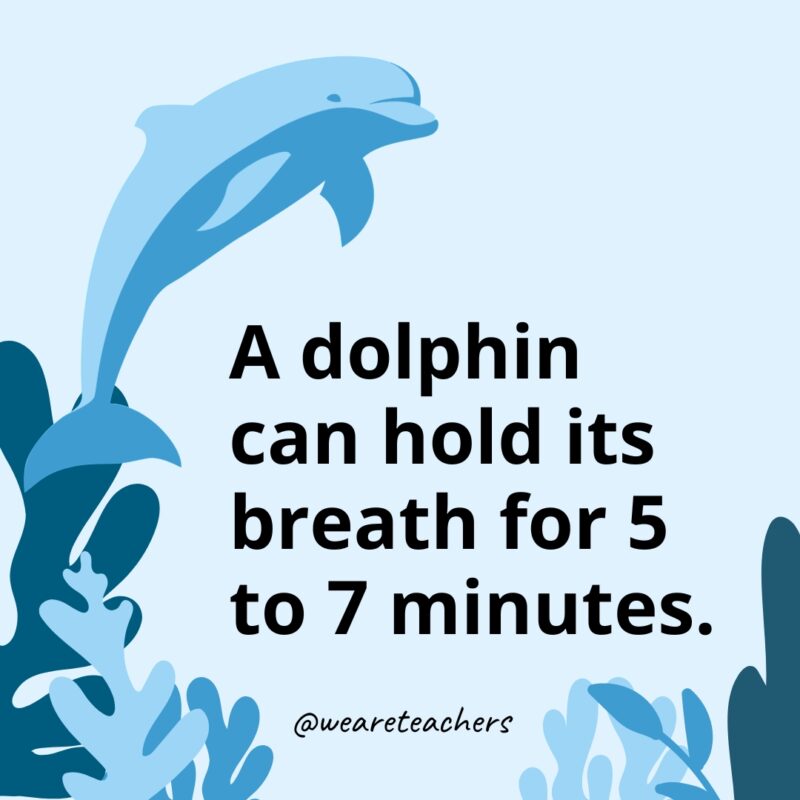Discover Fascinating Dolphin Facts That Will Certainly Surprise Your Close Friends
Wiki Article
Dive Into the Ocean: Captivating Dolphin Facts for Sea Lovers
The world of dolphins provides a fascinating intersection of knowledge, social actions, and ecological importance. With roughly 37 species, these aquatic creatures display a variety of impressive features that not just mesmerize ocean enthusiasts but additionally emphasize their essential function in marine communities. From their complex communication methods to their impressive problem-solving abilities, dolphins challenge our understanding of animal knowledge. The pushing need for preservation efforts to protect these animals and their habitats increases vital questions concerning our responsibility in the direction of the ocean's inhabitants. What ramifications do these elements hold for our communications with these amazing beings?Dolphin Species Diversity
Variety is a hallmark of the dolphin family members, encompassing a variety of types that show distinct physical attributes, behaviors, and habitats. The household Delphinidae, commonly called nautical dolphins, comprises roughly 37 varieties, each adjusted to specific environmental particular niches. The bottlenose dolphin (Tursiops truncatus) is renowned for its intelligence and adaptability, growing in both seaside and open ocean settings.In comparison, the orca (Orcinus orca), typically referred to as the killer whale, is the largest member of the dolphin household and is defined by its striking black-and-white coloration. Orcas demonstrate complicated social structures and searching techniques, showcasing the behavioral diversity within the household. Other types, such as the spinner dolphin (Stenella longirostris), are noted for their acrobatic screens and preference for warmer waters, highlighting the adaptability of dolphins to various marine environments.
Furthermore, river dolphins, consisting of the pink river dolphin (Inia geoffrensis), populate freshwater settings, further illustrating the varied habitats that dolphins inhabit. Dolphin Facts. This extraordinary variety not just improves aquatic ecosystems yet also emphasizes the value of conservation efforts to shield these exceptional creatures and their settings
Social Habits and Interaction
The detailed social behavior and communication techniques of dolphins are important components of their presence, assisting in team cohesion and boosting survival. These very intelligent marine creatures display complex social frameworks, often creating shells that can vary from a couple of individuals to over a hundred. Within these teams, dolphins participate in behaviors such as participating hunting, social play, and mutual defense, which foster solid bonds amongst participants.Dolphins make use of an advanced array of vocalizations, consisting of clicks, whistles, and body language, to share information and share emotions. Their trademark whistles function as special identifiers, akin to names, making it possible for individuals to call out to one an additional. This vocal interaction is complemented by non-verbal signals, such as leaping, slapping the water, and integrated swimming, which further boosts their interactions.

One-of-a-kind Feeding Routines
Special feeding practices characterize dolphins, showcasing their adaptability and knowledge in different marine settings. These aquatic animals are known for their varied diets, which largely are composed of fish, squid, and crustaceans. Their searching methods can vary significantly, commonly customized to the certain prey and ecological conditions.One notable approach is cooperative searching, where dolphins operate in teams to herd institutions of fish right into tight developments, making it simpler for individuals to capture their meal. This social behavior not just boosts their feeding performance yet additionally enhances social bonds within the hull. Furthermore, dolphins have been observed utilizing a strategy called Your Domain Name "fish-whacking," where they utilize their tails to disorient or stun fish, assisting in less complicated capture.
One more interesting feeding behavior is echolocation, which allows dolphins to spot victim also in dirty waters. On the whole, the one-of-a-kind feeding practices of dolphins highlight their function as proficient killers within the aquatic ecological community, demonstrating both intelligence and resourcefulness.
Intelligence and Problem Resolving
Dolphins exemplify exceptional cognitive capacities that expand past their advanced feeding methods. Their intelligence is noticeable in their analytical skills, social interactions, and ability for learning. Research has demonstrated that dolphins can utilize devices, such as using aquatic sponges to protect their rostrums while foraging on the seafloor. This behavior highlights their ability to adjust their setting properly and adjust strategies to enhance survival.Furthermore, dolphins exhibit innovative interaction abilities, utilizing a complex system of clicks, whistles, and body movement. Dolphin Facts. This interaction is vital for coordinating team activities, such as hunting and mingling, showing their ability to work jointly towards an usual goal. Their ability to recognize abstract ideas, including self-recognition in mirrors, better highlights their cognitive elegance
In regulated research studies, dolphins have actually shown an ability to fix puzzles and execute tasks that call for both memory and important reasoning. These interactions suggest not just knowledge but likewise a determination to involve with their environment in unique ways. On the whole, the cognitive prowess of dolphins puts them among one of the most smart types on the planet, promoting a much deeper gratitude for their duty in marine environments.
Conservation and Environmental Effect
Preservation efforts focused on protecting marine ecological communities are essential for protecting dolphin populaces and their habitats. Dolphins are highly delicate to ecological modifications, and their survival is elaborately linked to the health and wellness of nautical environments. Overfishing, contamination, and environment adjustment position considerable dangers to both dolphins and their settings.Overfishing disrupts the food cycle, resulting in a decline in victim species crucial for dolphin survival. Additionally, pollutants such as chemicals and plastics accumulate in marine atmospheres, jeopardizing dolphins via intake and bioaccumulation. Boosted water temperature levels and a knockout post ocean acidification, repercussions of climate modification, additionally endanger the delicate balance of marine ecosystems, affecting dolphin breeding and migratory patterns.
By prioritizing preservation efforts, we can make certain that future generations delight in the beauty and vigor of dolphins and the oceans they populate. Protecting aquatic ecosystems is not just about saving dolphins; it is concerning protecting the detailed web of life that maintains us all.
Conclusion
Dolphins exhibit the complexity and splendor of marine life through their varied types, elaborate social structures, and Website progressed cognitive capabilities. As crucial components of aquatic environments, dolphins highlight the need of recurring conservation initiatives to safeguard their environments.Other species, such as the spinner dolphin (Stenella longirostris), are kept in mind for their acrobatic screens and choice for warmer waters, highlighting the flexibility of dolphins to numerous aquatic ecological communities.
On the whole, the special feeding routines of dolphins highlight their role as proficient predators within the aquatic community, showing both intelligence and resourcefulness.
Overall, the cognitive expertise of dolphins positions them among the most intelligent types on the planet, fostering a much deeper appreciation for their role in marine communities.

Report this wiki page